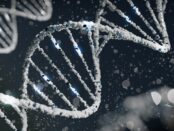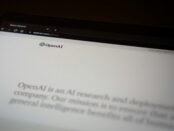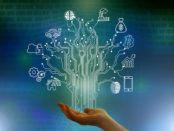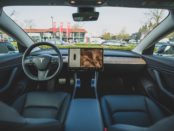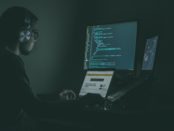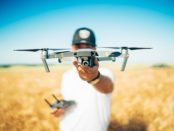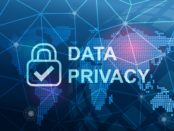Technology and the Law
Examining the intersection of technology and the law, particularly focusing on the legal implications of technological developments.
Penalties for committing a crime included in the CFAA range from imprisonment for less than a year to a maximum of life imprisonment. However, it is often difficult for the government to pinpoint the exact identity of cybercriminals to bring them to justice, especially if they are located in a different country.
[...]
The editing of genome cells is used in a number of ways, including treating and preventing hereditary diseases. A first case look includes a “brave” scientist by the name of He Jiankui of Shenzhen, China’s Southern University of Science and Technology, shocked the world by unveiling his unique experiment where he secretly modified the embryos of nine different couples who had biological fathers with HIV positive genes and mothers with HIV negative genes.
[...]
OpenAI, the company behind ChatGPT, has a list of activities that are banned, with the risk of termination of a user’s account if the company discovers banned activity. Within these banned activities, OpenAI specifically prohibits academic dishonesty. The regulation instructs its users not to misinform, misrepresent, or mislead others.
[...]
Tracing ChatGPT back to its conception, the core of the programming was always the Language Learning Model. By being able to access and compress a large number of data points into a uniquely generated output mimicking speech patterns, chatbots seem to be a supreme combination of search engines and research tools.
[...]
As federal policymakers research and draft data privacy legislation for the entire country to follow, there is tension between these state acts and the federal government’s plan for the future of data privacy in America.
[...]
The nuance between different subsets of AI is important when considering its implications. Just as important as it is to know what AI can do, it is equally important to recognize how AI has its risks.
[...]
What do an electric car company, a space exploration company, and a blue bird social media company all have in common? If you guessed Elon Musk as their collective owner, then you guessed correctly. Twitter, very recently, joined the ranks of Tesla and SpaceX when Elon Musk purchased the company for $44 billion. He wanted to make Twitter “a platform for speech around the globe” after not being satisfied with its leadership board and believing they were not advancing that mission.
[...]
One core subject every law student learns in their Civil Procedure course is “personal jurisdiction.” “Personal jurisdiction is the power of a court to make a decision about the party being sued in a legal suit. Simply put, a person or entity can only be sued in a legal jurisdiction if the jurisdiction has the power to compel the Defendant’s attendance. This makes sense if we examine the meaning and origins of the word “jurisdiction” itself. Jurisdiction is a combination of two
[...]
Are the 474 defendants charged with crimes for COVID-19 fraud schemes and the 1,686,121 reports of identity theft in 2021 just the tip of the iceberg? COVID-19 steered the world into financial disruption. As a result, the prevalence of white collar crime has skyrocketed over the last few years, particularly in the forms of government benefits fraud and identity theft. White collar criminals have targeted government benefits such as the Economic Injury Disaster Loan (EIDL) program, the
[...]
Just what is Artificial Intelligence (AI)? Almost two decades ago, Stanford University’s John McCarthy, founder of the field of Artificial Intelligence (AI), outlined the definition for the layman in his paper, “What is AI?.” “AI is the science and engineering of making intelligent machines, especially intelligent computer programs. It is related to the similar task of using computers to understand human intelligence, but AI does not have to confine itself to methods that are
[...]
"Now what the heck's an NFT? Apparently cryptocurrency, everyone's making so much money, can you please explain what's an NFT?" - Pete Davidson of Saturday Night Live
[...]
Automated vehicles with automated driving abilities have become a far more common sight recently. Regardless of who or what may be at fault for accidents involving autonomous cars, it is clear that the law on the subject will have to soon address this issue.
[...]
Despite its name, reputation, and association as the criminal underworld alluding to Greek mythology, the Dark Web has multiple layers of purposes utilized by civilians in different roles.
[...]
Drone use by citizens has become an ever-increasing trend since they burst onto the scene in the early 2010s and sales have rapidly increased. Drones are used by consumers and companies in a variety of contexts: promotional videos, weddings, news footage, and even the 2018 Winter Olympics. In 2013 Amazon first introduced its idea to use drones for delivering packages, estimating such use to begin by 2015. So why weren’t Amazon packages being delivered by drones in 2015? One reason was
[...]
Using the Internet is a daily habit for millions of individuals in our high-tech society. Countless activities can be done online, such as sharing photos on social media sites, shopping, and reading news from around the world. Many use the Internet for work, or to conduct mundane activities to pass the time. The Internet has become such a major facet in our society that according to Pew Research Center approximately ninety percent of adults in the United States used the Internet in
[...]
1
2
3
…
9
»


